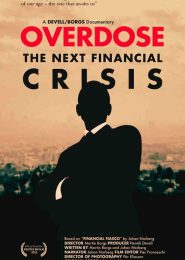Debtocracy (2011)
Debtocracy, a low-budget documentary made for just £7,000, delves into the heart of Greece’s financial crisis. Directed by Katerina Kitidi and Aris Chatzistefanou, the film seeks to uncover the causes behind Greece’s debt predicament and proposes alternative solutions that have been sidelined by the government and dominant media.
The film begins by examining the collapse of Greece’s public finances and the subsequent €110 billion loan from Europe and the International Monetary Fund (IMF). Unlike other credit-crunch documentaries that point fingers at specific culprits, Debtocracy takes a broader perspective. It doesn’t focus on individual guilt but rather critiques the entire European system.
The voiceover poses a fundamental question: Is Greece the black sheep of an otherwise successful Europe, or has the system itself been ailing since its inception? The film argues that the euro system was flawed from the start, with bankers in Frankfurt and Paris accumulating surplus cash while southern Europeans relied on cheap loans.
Despite its modest budget and lack of flashy camera work, Debtocracy stands out as a powerful piece of Marxian economic analysis. Released online and on YouTube, it quickly gained traction, amassing close to a million views. The film struck a chord with young Greeks with broadband connections, but its impact extended beyond urban centers. Small villages screened it, and even elderly residents in the countryside requested DVD copies.
Debtocracy became more than just a documentary; it became an artifact of popular resistance against the austerity measures imposed on Greece. By shedding light on the systemic issues and hidden narratives, the film challenged the dominant discourse surrounding the debt crisis. Its success demonstrated the power of grassroots media and the hunger for alternative perspectives.
In summary, Debtocracy is a compelling exploration of Greece’s financial woes, offering a fresh lens through which to understand the complexities of debt, austerity, and economic systems. Despite its humble origins, this documentary left an indelible mark on the discourse surrounding the Greek crisis and continues to resonate with audiences seeking deeper insights into global financial dynamics.




